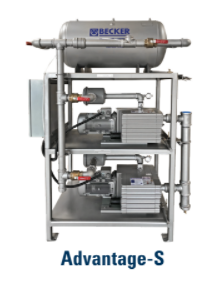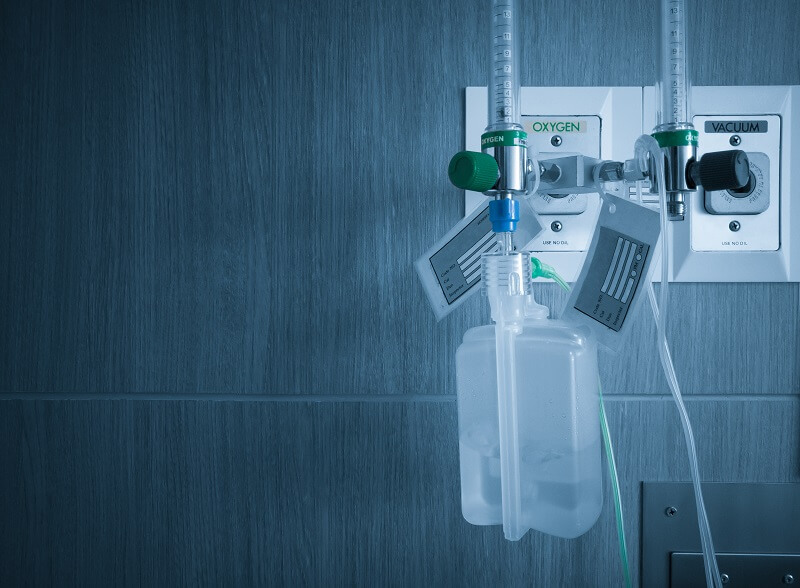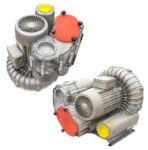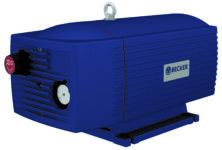
Making the right choice about repairing or replacing a pump ensures your medical vacuum system meets the NFPA 99 Health Care Facilities Code and safeguards your peace of mind.
Good maintenance decisions can minimize the upfront and long-term costs of equipment. This is especially true for life-sustaining technology, like a medical vacuum system. One of the most daunting judgments a healthcare facility manager faces involves the upkeep of older, potentially failing pumps.
The dilemma is whether to repair or replace a medical vacuum pump. Even if you fix the pump, as the system limps along it may still fail, sacrificing reliability. However, a full pump replacement is a big decision that comes with significant upfront capital.
This post will help you decide whether to repair or replace your existing medical vacuum system.
Medical suction is vital to health care facilities and laboratories. The suction system aids caregivers during and after surgery to remove gases or liquids, allows technicians to sterilize medical equipment, and enables the high-vacuum conditions necessary for x-rays.
Having a medical vacuum system fail causes immense problems—and the larger the hospital, the bigger and more complex the problem becomes.
Any unplanned suction outage jeopardizes the safety of patients and the regulatory fallout can be devastating. Even a planned outage is complex, requiring a fleet of portable units to replace suction throughout a facility.
REPAIRING A MEDICAL VACUUM PUMP
For non-critical equipment, the repair versus replace question is simple: if the repair cost is more than the asset’s value, you replace it.
REPAIR COSTS
From a quote perspective, repairing a pump is less expensive than replacing the pump.
But wait—there’s a lot of behind-the-scenes work and moving parts to consider such as time, labor, resources, and operational disturbance.
The failing pump must be removed, then a temporary, working stand-in will need to be connected. The original pump must be reinstalled after the repair and the stand-in taken away. These tasks are not always simple or straightforward.
LONG-TERM CONSIDERATIONS
The fact is, a repaired pump won’t last as long as a new one.
Another primary consideration when it comes to repairs is a medical vacuum system’s control panel. A control panel is the “brain” of a system and needs upgrading just like old pump parts. But panels over 10 years old often have parts that cannot be replaced anymore.
Also, it’s likely that if one pump needs repairing, all the pumps in the system may need attention. Pumps operating under NFPA 99 should have similar run hours and therefore, similar wear and tear.
REPLACING A MEDICAL VACUUM PUMP
The most obvious drawback to replacing a medical vacuum system is the high cost. However, a facility faces significant impacts if a system is replaced too late. Consider:
- Downtime
- Risk of reliability
- Potential non-compliance
- Maintenance costs
IS YOUR MEDICAL VACUUM PUMP NEAR FAILING?
We’re all pressed for time and money so it’s understandable that sometimes people don’t reach out for help until after a pump fails.
However, a “run-to-failure” mindset doesn’t always work. Instead, try identifying if a pump is nearing its lifespan. To start, consider the age of the pump itself.
At Becker, our experience has shown that a pump lasts twelve years on average. We’ve also found that, on average, medical vacuum systems in hospitals are replaced every decade. If a pump at your facility is nearing the 10-year mark, it’s time to consider the advantages of replacement.
Other pump fail factors to look for include increasing noise levels, vibration, and the need to run more pumps than usual.

WHAT TO DO IF YOUR MEDICAL VACUUM SYSTEM FAILS
When a pump goes down, Becker is ready to act. We can provide a rental pump to get your system back into NFPA 99 compliance. Then, we can investigate and analyze the remaining potential of the failed pump once it’s at our shop.
BECKER PUMP’S REPAIR & REPLACE SERVICES
Here at Becker, we’ve been pump experts for over 135 years. Therefore, we have the full repair capabilities to fix any of our pumps, from simple maintenance items to a complete rebuild. Our technicians excel at knowing the ins and outs of every Becker pump.
If your medical vacuum system is experiencing an issue, we can help troubleshoot. To start, we ask a few simple questions:
- How many pumps are in your system?
- How many pumps usually run at the same time?
- What’s the age of the system?
- What’s the condition of the pumps?
With us, you’ll get a fast turnaround, competitive pricing, and peace of mind knowing the job will be done right.
MAKE IT BECKER
We’re proud to manufacture some of the world’s most reliable medical vacuum pumps.
Our extensive client training and support will help you service and maintain your vacuum system and extend the life of your equipment.
Speak to one of our experts about filling your specific medical vacuum system needs.




